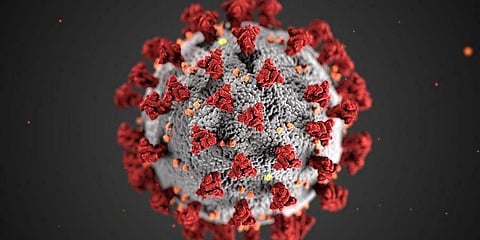

Coronavirus loses 90% of its ability to infect people within 20 minutes of becoming airborne – with most of the loss occurring within the first five minutes, according to the world's first simulations of how the virus survives in exhaled air.
The findings by Bristol's Aerosol Research Centre ( University of Bristol) re-emphasise the importance of short-range Covid transmission, with physical distancing and mask-wearing likely to be the most effective means of preventing infection, reports The Guardian.
With increased time in the air, there is further loss of infectivity in the virus, a statement by the center noted. Ventilation, though still worthwhile, is likely to have a lesser impact, the study further said.
"People have been focused on poorly ventilated spaces and thinking about airborne transmission over metres or across a room. I'm not saying that doesn't happen, but I think still the greatest risk of exposure is when you're close to someone," Prof Jonathan Reid, director of the University of Bristol's Aerosol Research Centre and the study's lead author, was quoted by The Guardian as saying.
"When you move further away, not only is the aerosol diluted down, there's also less infectious virus because the virus has lost infectivity (as a result of time)."
Biologists at the University of Bristol, however, developed a mechanism that allows for an accurate simulation of how long the virus can survive when it is in the air.
The study indicated that as Covid particles leave the lungs that are warm, moist, and rich in carbon dioxide, they begin to rapidly dehydrate and lose water once they come into contact with air which is far richer in oxygen than in carbon dioxide. The loss of moisture disrupts its ability to infect human cells.